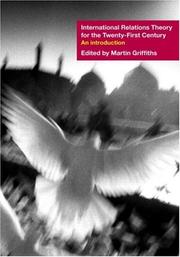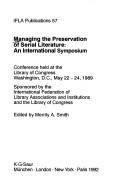| Listing 1 - 3 of 3 |
Sort by
|
Book
ISBN: 9780691203515 0691203512 9780691206196 9780691206202 Year: 2020 Publisher: Princeton, NJ
Abstract | Keywords | Export | Availability | Bookmark
 Loading...
Loading...Choose an application
- Reference Manager
- EndNote
- RefWorks (Direct export to RefWorks)
"From Spanish conquistadors through to pith-helmeted British colonialists, the prevailing vision of European empire-builders has been staunchly statist. But from the early 1600s through to the early twentieth century, from the East Indies to North America to Africa and the South Pacific, it was company states - not sovereign states - that played the most important role in driving European worldwide commercial and colonial expansion. In Asia, the Dutch and English East India Companies ingratiated themselves with mighty Asian rulers such as the Mughal and Qing Emperors to infiltrate Asian markets. In North America, the Hudson's Bay Company maintained a network of forts and factories across the continent closely integrated with American Indian trading routes and practices. And in Africa, the company states were first key intermediaries in the trans-Atlantic slave trade, and later the colonial vanguards of the 'scramble for Africa.' Notwithstanding their central importance for both International Relations scholars and students of global history, company states remain largely ignored in studies of the modern international system's evolution and expansion. Beholden to an outdated historiography, most scholarship on the expansion of the international system looks only at sovereign states. Historians and historical sociologists have done more to acknowledge company states' pioneering role. But these studies have typically focused on individual company states in isolation, and have thus missed the significance of company states as key progenitors of the modern international system. As a result of this neglect, we lack an understanding of what defined the company states as a distinctive form of international actor, and how they served as crucial but now largely forgotten builders of the world's first truly global international system. Existing works struggle to account for rise, fall and fleeting nineteenth century resurrection of company states as agents of long distance commerce and conquest, as well as their sharply contrasting fortunes in different regions. Finally, unless we understand the nature and significance of company states, we cannot understand how inter-civilizational relations were mediated across trans-continental distances and deep cultural differences for the majority of the modern era. These are the vital gaps in our knowledge which the authors seek to address in this book"--Provided by publisher.
International cooperation --- Cooperation, International --- Global governance --- Institutions, International --- Interdependence of nations --- International institutions --- World order --- Cooperation --- International relations --- International organization --- History --- Europe --- Council of Europe countries --- Eastern Hemisphere --- Eurasia --- Colonies. --- Economic order --- Economic schools --- International trade --- International trade. --- International cooperation. --- Handelskompanie. --- Internationale Politik. --- Kolonialismus. --- History.


ISBN: 9780415380768 9780415380751 0415380766 0415380758 9780203939031 0203939034 9781134178919 9781134178957 9781134178964 Year: 2007 Publisher: London Routledge
Abstract | Keywords | Export | Availability | Bookmark
 Loading...
Loading...Choose an application
- Reference Manager
- EndNote
- RefWorks (Direct export to RefWorks)
International Relations theory has been the site of intense debate in recent years. A decade ago it was still possible to divide the field between three main perspectives Realism, Liberalism, and Marxism. Not only have these approaches evolved in new directions, they have been joined by a number of new isms' vying for attention, including feminism and constructivism. International Relations Theory for the Twenty-First Century is the first comprehensive textbook to provide an overview of all the most important theories within international relations. Written by an international team of experts in the field, the book covers both traditional approaches, such as realism and liberal internationalism, as well as new developments such as constructivism, poststructuralism and postcolonialism.The book's comprehensive coverage of IR theory makes it the ideal textbook for teachers and students who want an up-to-date survey of the rich variety of theoretical work and for readers with no priorexposure to the subject.


ISBN: 3598217838 3111860256 3110970988 9783110970982 9783598217838 Year: 2013 Volume: 57 Publisher: Berlin Boston
Abstract | Keywords | Export | Availability | Bookmark
 Loading...
Loading...Choose an application
- Reference Manager
- EndNote
- RefWorks (Direct export to RefWorks)
Book conservation --- Book acquisition --- Serial publications --- Congresses --- Conservation and restoration --- Congresses. --- -050 --- 651.54 --- Publications, Serial --- Serials (Publications) --- Continuing resources (Publications) --- International Standard Serial Numbers --- Series (Publications) --- -Congresses --- 050 --- Conservation and restoration&delete& --- Preservation --- Resources, Continuing (Publications) --- Publications --- Integrating resources (Publications) --- Serial publications - Conservation and restoration - Congresses.
| Listing 1 - 3 of 3 |
Sort by
|

 Search
Search Feedback
Feedback About UniCat
About UniCat  Help
Help News
News